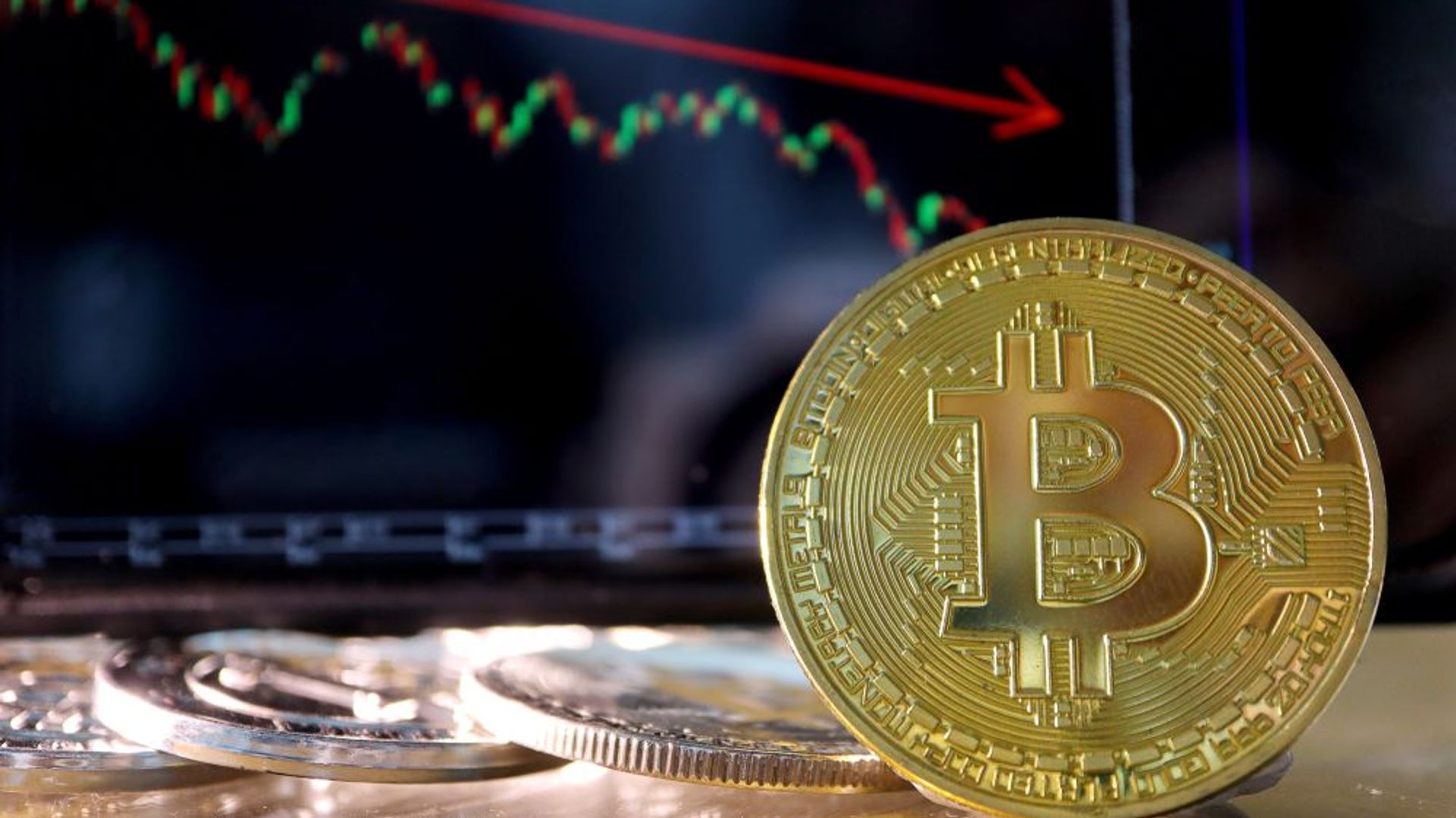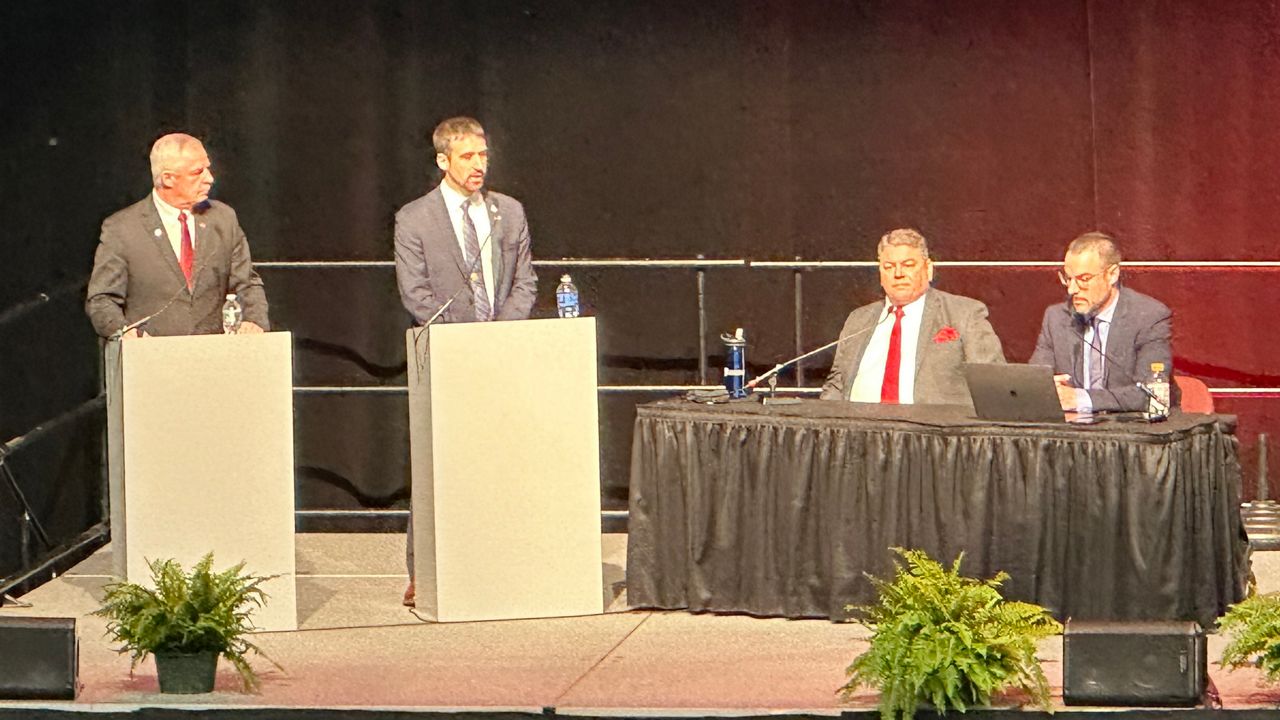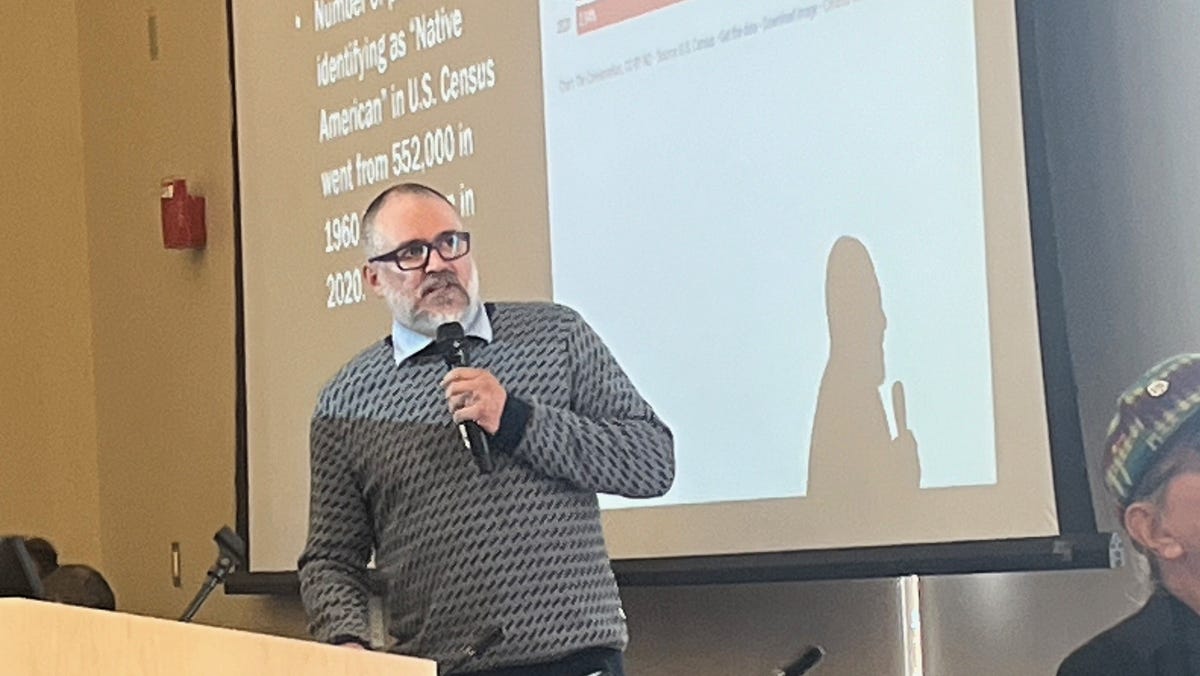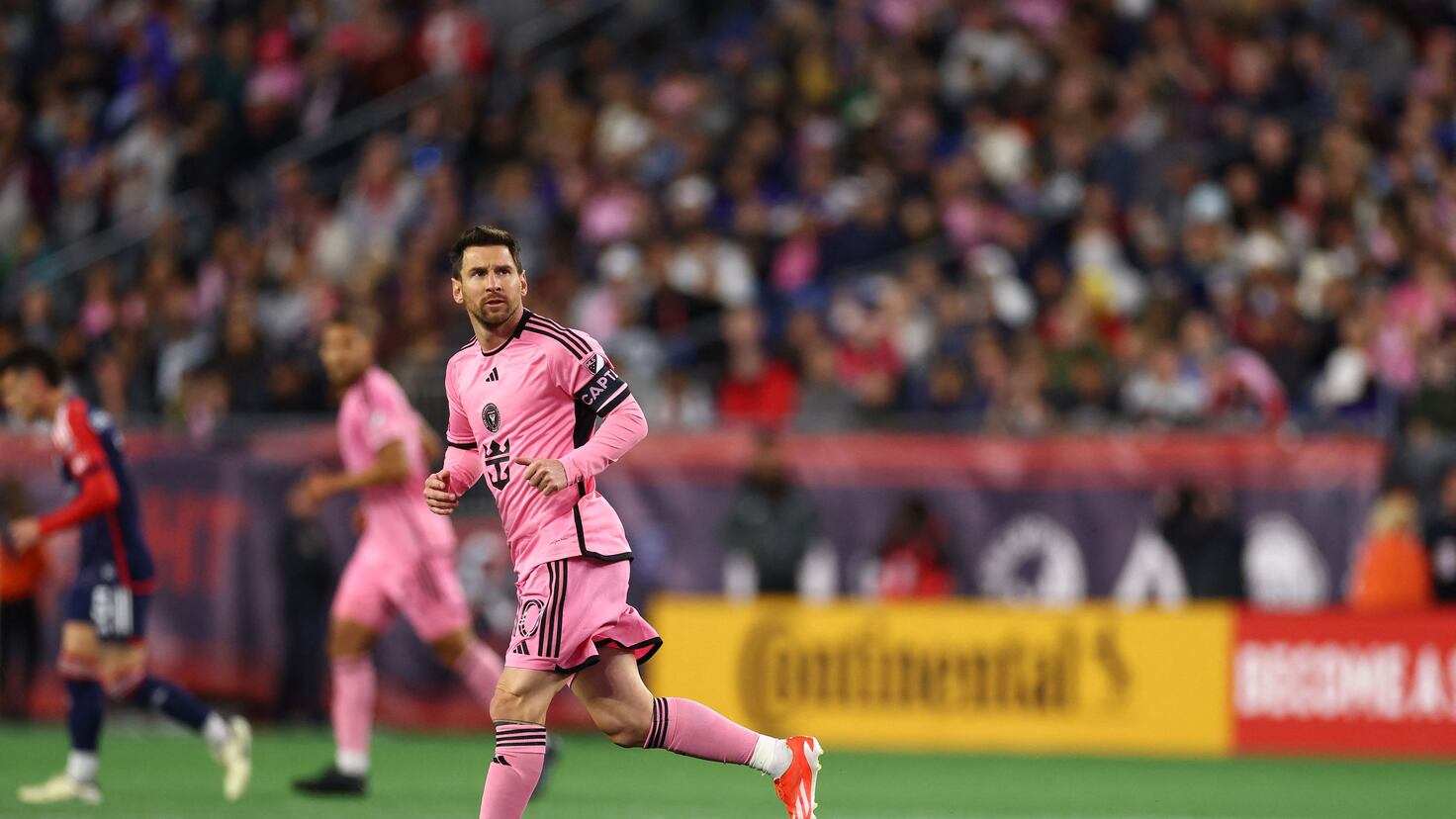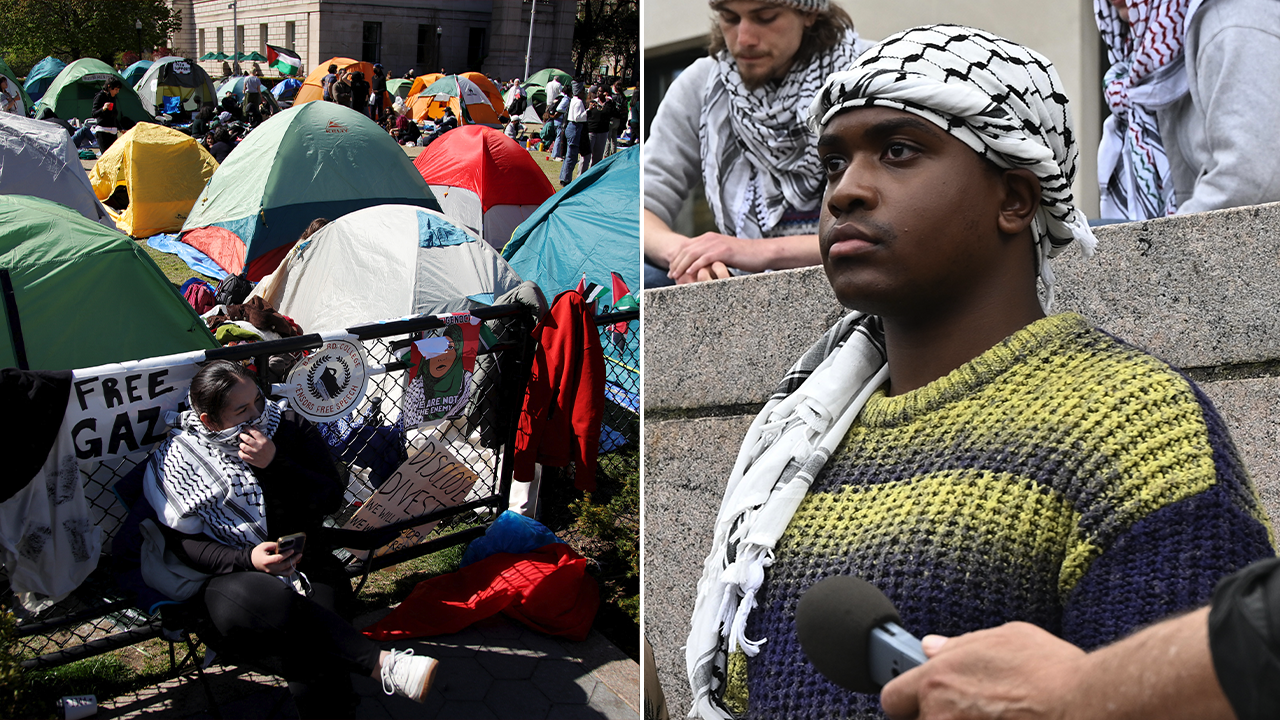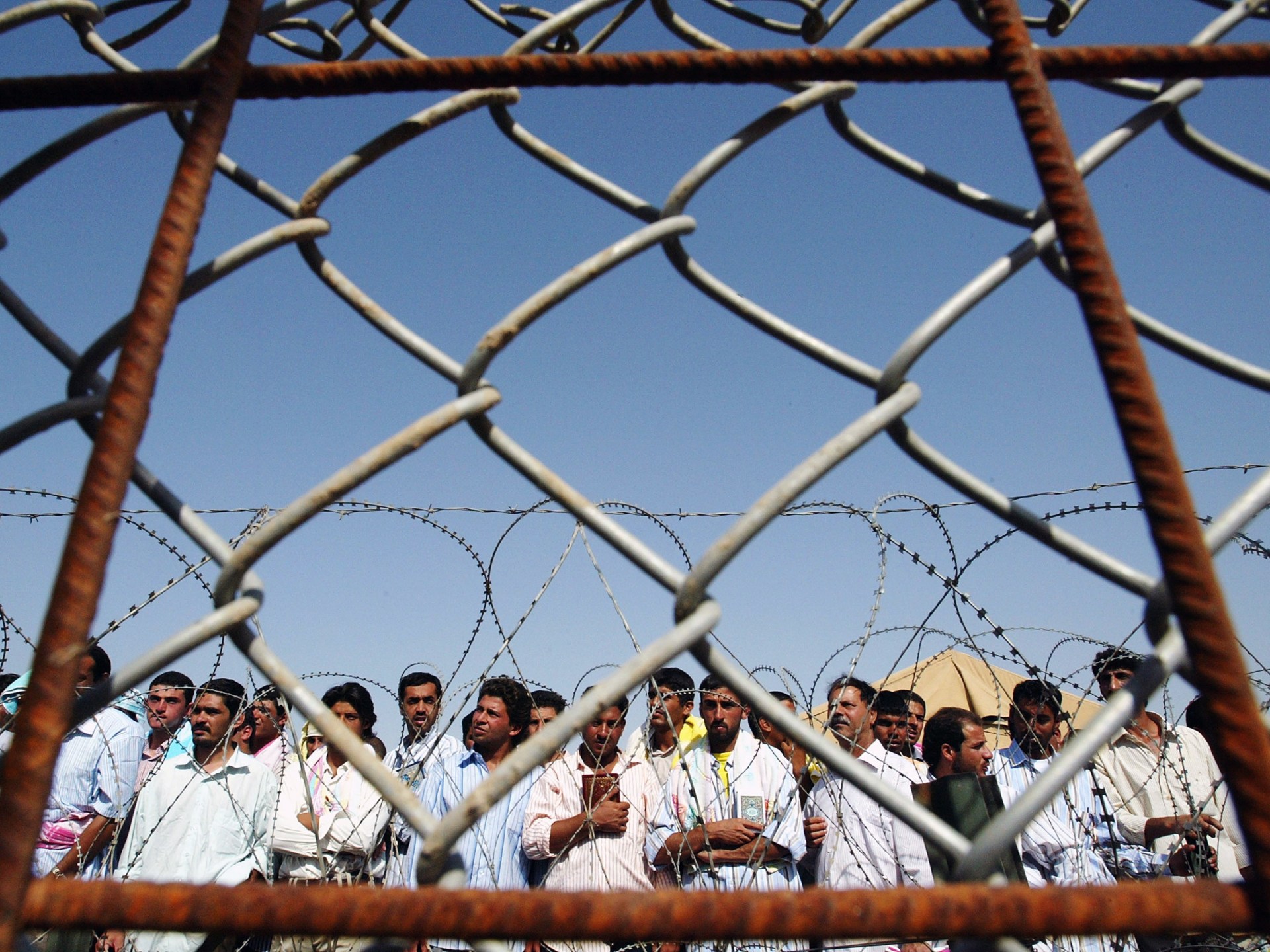World
Macron vows to build back factories, boost France’s economy shaken by pension protests

DUNKIRK, France (AP) — Building factories to boost job creation and make France more independent — that’s President Emmanuel Macron’s ambition for the French economy.
It’s a big challenge, as France reels from protracted protests, rising food and energy prices and other fallout from the Ukraine war.
While Macron woos investors to help “re-industrialize” France and reduce Europe’s dependence on China and the U.S., protesters follow him around the country, banging saucepans to protest economic injustice and his leadership.
More than 200 international business leaders are expected Monday at the ‘Choose France’ event staged at the palace of Versailles to promote foreign investment.
It follows a series of incentives announced by Macron last week to support innovative industries and transition towards greener technology. They include tax credits in fields like battery production, electric cars, hydrogen and wind power, as well as accelerating authorization for industrial projects.
“France is changing, is getting adapted to the course of the world and I believe that we’re following the right path, which is to reindustrialize the country, to be more sovereign and more respectful of the climate and biodiversity,” Macron said Friday during a visit to Dunkirk, in northern France.
Macron’s move comes after months of protests against his decision to raise the retirement age from 62 to 64. The unpopularity of the reform has weakened his government at parliament and hampered his economic strategy.
Unions have called for a new round of nationwide demonstrations on June 6. Meanwhile, opponents keep staging small protests, with people loudly banging pots and pans in places where Macron and government members are scheduled to travel.
Credit rating agency Fitch last month downgraded France’s sovereign credit rating, citing the protest movement. “Political deadlock and (sometimes violent) social movements pose a risk to Macron’s reform agenda,” the agency wrote.
In Dunkirk Friday, Macron made time for many selfies with workers from several local factories who attended his speech at Aluminium Dunkerque, one of the biggest aluminum production sites in Europe. None of them asked him about the retirement age and, in contrast with his previous visits across French regions, he didn’t walk through the city streets to meet with the crowd.
A heavy police presence was deployed in Dunkirk to keep potential protesters away.
Macron announced two major investments, both in the battery sector: one worth 5.2 billion euros ($5.7 billion) by Taiwanese group Prologium, the other one via a joint venture of China’s XTC with French energy giant Orano worth 1.5 billion euros ($1.6 billion). They are expected to create 3,000 and 1,700 jobs in the area respectively by 2030.
He seized the occasion to present the pension reform as part of a “package” that has already produced “results.” “If we want to be more competitive, we must work a little longer,” he said.
Since he took office in 2017, Macron has cut business taxes. He has made it easier to hire and fire workers and more difficult for the unemployed to claim benefits, amid other pro-business policies.
Macron said 300 new factories had been created since 2017 — two thirds in the past two years — while 600 had been shut down in the previous decade. The COVID-19 crisis and Ukraine war have shown that domestic industrial production is needed to strengthen the country’s sovereignty, he stressed.
For a fourth consecutive year, France was the European country that had attracted the greatest number of foreign investments, Macron said, citing a survey by EY last week.
The Paris-based Organization for Economic Cooperation and Development said Friday its statistics showed France’s unemployment rate in March reached its lowest level since 2001, at 6.9% — down from about 10% when Macron was elected. Still, the proportion of jobless people in France is higher than the average in the European Union, which is stable at 6%.
ProLogium CEO Vincent Yang told reporters in Dunkirk his group considered establishing facilities in the U.S., yet eventually chose the European Union as being more a favorable environment to develop innovative battery technology.
France was a relevant choice, Yang said, because “we need to have stable, low-cost, and green electrical power” and Dunkirk, one of the major industrial ports in Europe, already has battery-related facilities. The country relies on nuclear power for 70% of its electricity, offering a low-carbon alternative to fossil fuels.
Macron has been one of the most prominent advocates for a strong EU response to the $375 billion U.S. Inflation Reduction Act announced last summer by President Joe Biden to favor clean energy technology.
Earlier this year, the European Union presented plans to revamp its policies on promoting green technologies, unleashing subsidies and other financial incentives to ramp up domestic production.
“We’re going to better target our subsidies on low-emission European productions,” Macron said. “We’re not being protectionist but taxpayers neither in the U.S. nor China fund batteries made in Europe. So why should we be the only place in the world where taxpayers’ money goes to helping non-European products? We’re going to stop doing that.”
He also called last week for a “pause” on EU environmental regulations, arguing the bloc of 27 already imposes tougher rules than its competitors. The comments prompted immediate criticism from French and European Green politicians.
Macron later insisted he was sticking to his climate-related commitments, including all policies aimed at making the EU reaching carbon neutrality by 2050, but said, “Let’s not add more.”

World
Biden will give election-year roast at annual correspondents' dinner as protests await over Gaza war
WASHINGTON (AP) — President Joe Biden is set to deliver an election-year roast Saturday night before a large crowd of journalists, celebrities and politicians against the backdrop of growing protests over his handling of the Israel-Hamas war.
In previous years, Biden, like most of his predecessors, has used the annual White House Correspondents’ Association dinner to needle media coverage of his administration and jab at political rivals, notably Republican rival Donald Trump.
But with protesters pledging to gather outside the dinner site, any effort by Biden to make light of Washington’s foibles and the pitfalls of the presidential campaign will have to be balanced against concerns over the war and humanitarian crisis in Gaza and the perils for journalists covering the conflict. Criticism of the Biden administration’s support for Israel’s 6-month-old military offensive in Gaza has spread through American college campuses, with students pitching encampments in an effort to force their universities to divest from Israel. Counterprotests back Israel’s offensive and complain of antisemitism.
Biden’s speech before an expected crowd of nearly 3,000 people at a Washington hotel will be followed by entertainer Colin Jost from “Saturday Night Live,” who is sure to take some pokes at the president as well as his opponents.
There will also likely be a spotlight on the many journalists detained and otherwise persecuted around the globe for doing their jobs, including Wall Street Journal reporter Evan Gershkovich, who has been imprisoned in Russia since March 2023.
But before the president gets to the Washington Hilton — where the event has been held for decades — he was expected to pass hundreds of people rallying along the path of Biden’s motorcade and nearby to bring attention to the high numbers of Palestinian and other Arab journalists killed by Israel’s military since the war began in October.
Law enforcement, including the Secret Service, have instituted extra street closures and other measures to ensure what Secret Service spokesman Anthony Guglielmi said would be the “highest levels of safety and security for attendees.”
The agency was working with Washington police to protect demonstrators’ right to assemble, Guglielmi said. However, “we will remain intolerant to any violent or destructive behavior.”
More than two dozen journalists in Gaza wrote a letter last week calling on their colleagues in Washington to boycott the dinner altogether.
“The toll exacted on us for merely fulfilling our journalistic duties is staggering,” the letter states. “We are subjected to detentions, interrogations, and torture by the Israeli military, all for the ‘crime’ of journalistic integrity.”
One organizer complained that the White House correspondents’ association — which represents the hundreds of journalists who cover the president — largely has been silent since the first weeks of the war about the killings of Palestinian journalists. WHCA did not respond to request for comment.
According to a preliminary investigation released Friday by the Committee to Protect Journalists, nearly 100 journalists have been killed covering the war in Gaza. Israel has defended its actions, saying it has been targeting militants.
“Since the Israel-Gaza war began, journalists have been paying the highest price— their lives—to defend our right to the truth. Each time a journalist dies or is injured, we lose a fragment of that truth,” CPJ Program Director Carlos Martínez de la Serna said in a statement.
Sandra Tamari, executive director of Adalah Justice Project, a U.S.-based Palestinian advocacy group that helped organize the letter from journalists in Gaza, said “it is shameful for the media to dine and laugh with President Biden while he enables the Israeli devastation and starvation of Palestinians in Gaza.”
In addition, Adalah Justice Project started an email campaign targeting 12 media executives at various news outlets — including The Associated Press — expected to attend the dinner who previously signed onto a letter calling for the protection of journalists in Gaza.
___ Associated Press writers Mike Balsamo and Fatima Hussein contributed to this report.
World
Ukraine lawmaker, 34, fights for Kharkiv in the public square

Mariia Mezentseva is a face of the war in Ukraine.
At just 34 years old and a member of Ukraine’s parliament, her formal tasks include looking into ways Ukraine can integrate into the rest of Europe’s institutions.
But, what really has gotten her attention are her posts about her hometown, Kharkiv. It has a population of 1.3 million people, just 20 miles from the northeast border with Russia.
From the beginning, Putin has wanted to take it over. In 2022, Ukrainians pushed them back.
However, in recent months, Russian attacks have grown furious, knocking out residential areas, power infrastructure, even the city’s huge TV tower.
Ukrainian parliament member Mariia Mezentseva in Kharkiv. (Mariia Mezentseva)
KEY NATO ALLY SHOCKS WITH ITS ‘SINGLE LARGEST’ PLEDGE TO UKRAINE: ‘THEY NEED OUR SUPPORT’
Moscow, in fact, made clear it has wanted to turn Kharkiv into a demilitarized zone so it would not threaten Russia.
Critics said Moscow has tried to turn Kharkiv into Aleppo, the Syrian rebel stronghold Russia flattened in its support of Assad in Damascus.
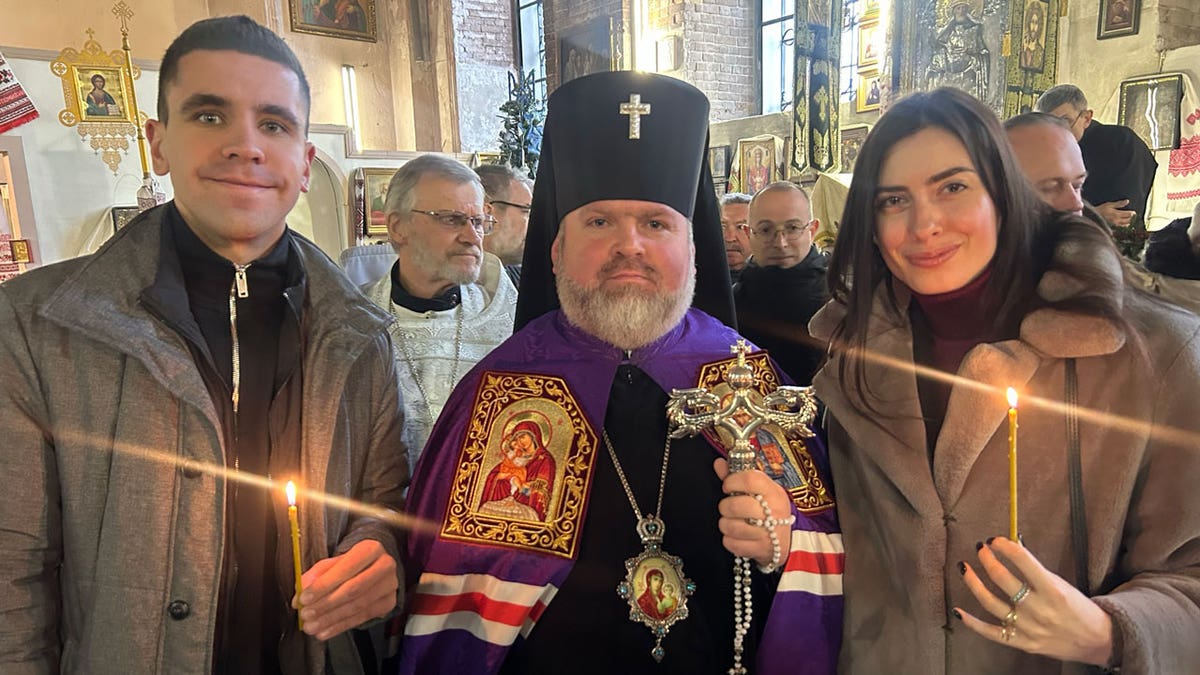
Ukrainian parliament member Mariia Mezentseva has taken her fight to social media. (Mariia Mezentseva)
Mezentseva regularly has posted shots of damage, rescue and relief efforts in Kharkiv, branding Russian efforts “genocidal actions.”
She generally has exuded hope, especially for the recent package of U.S. military aid for Ukraine which would benefit her home area.

Ukrainian parliament member Mariia Mezentseva standing in front of a military vehicle. (Mariia Mezentseva)
The package, Mezentseva said, “will serve the purpose for sure.”
Basically, for the time being at least, it will keep the city alive.
World
Zelenskyy warns of Russian nuclear risks on Chernobyl anniversary
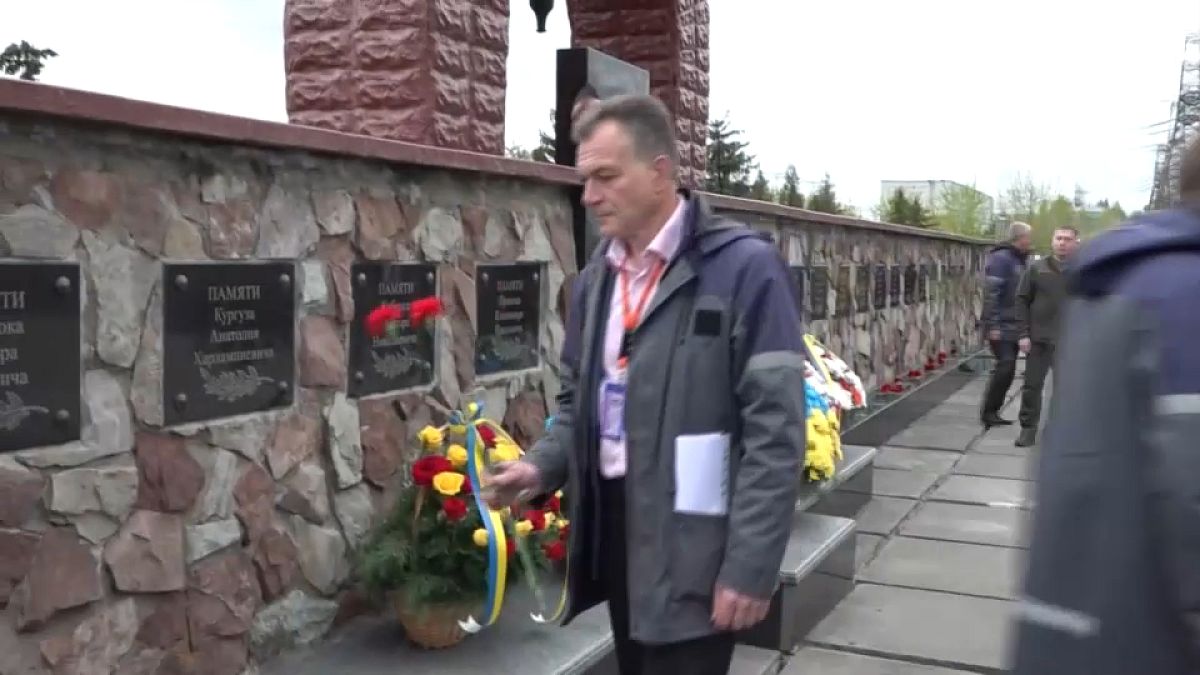
Ukrainian President Volodymyr Zelenskyy warned on Friday that the safety of Europe’s largest nuclear power plant Zaporizhzhia is threatened by Russia’s war against Ukraine, as the country marked the 38th anniversary of the Chernobyl disaster.
On the 38th anniversary of the Chernobyl nuclear power plant disaster on Friday, Ukrainian President Volodymyr Zelenskyy warned of the risks surrounding the Zaporizhzhia nuclear facility, which has been at the centre of nuclear safety crisis since Russia’s invastion of Ukraine.
Even under the shadow of the Chernobyl disaster in 1986, Zelenskyy said Russian forces were not taking the safety of the plant seriously.
Russian forces seized the Zaporizhzhia nuclear power plant in southern Ukraine in the first days of its 2022 invasion.
Both sides regularly accuse each other of endangering safety at the site, Europe’s largest nuclear facility.
“For 785 days now, Russian terrorists have held hostage the Zaporizhzhia NPP,” Zelenskyy wrote on X, formerly Twitter. “And it is the entire world’s responsibility to put pressure on Russia to ensure that ZNPP is liberated and returned to full Ukrainian control, as well as that all Ukrainian nuclear facilities are protected from Russian strikes.”
“This is the only way to prevent new radiation disasters, which the Russian occupiers’ presence at ZNPP constantly threatens.”
The Chernobyl explosion in 1986 is considered the worst nuclear accident in history in terms of the scale of contamination and the number of victims. The detonation in the reactor zones caused radioactive contamination that directly contaminated a radius of tens of kilometres, and wind and water movement carried nuclear contamination further afield.
-

 World1 week ago
World1 week agoIf not Ursula, then who? Seven in the wings for Commission top job
-

 Kentucky1 week ago
Kentucky1 week agoKentucky first lady visits Fort Knox schools in honor of Month of the Military Child
-

 Politics1 week ago
Politics1 week agoTrump trial: Jury selection to resume in New York City for 3rd day in former president's trial
-
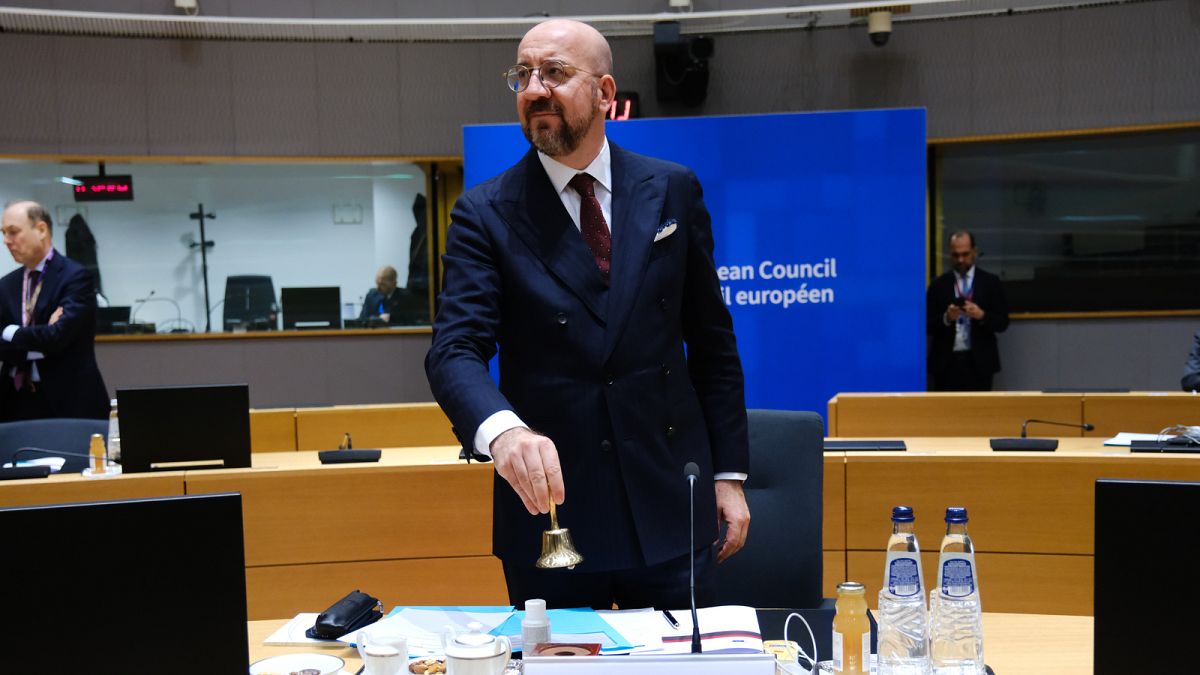
 World1 week ago
World1 week agoEU leaders weigh Lebanon partnership in response to Middle East crisis
-
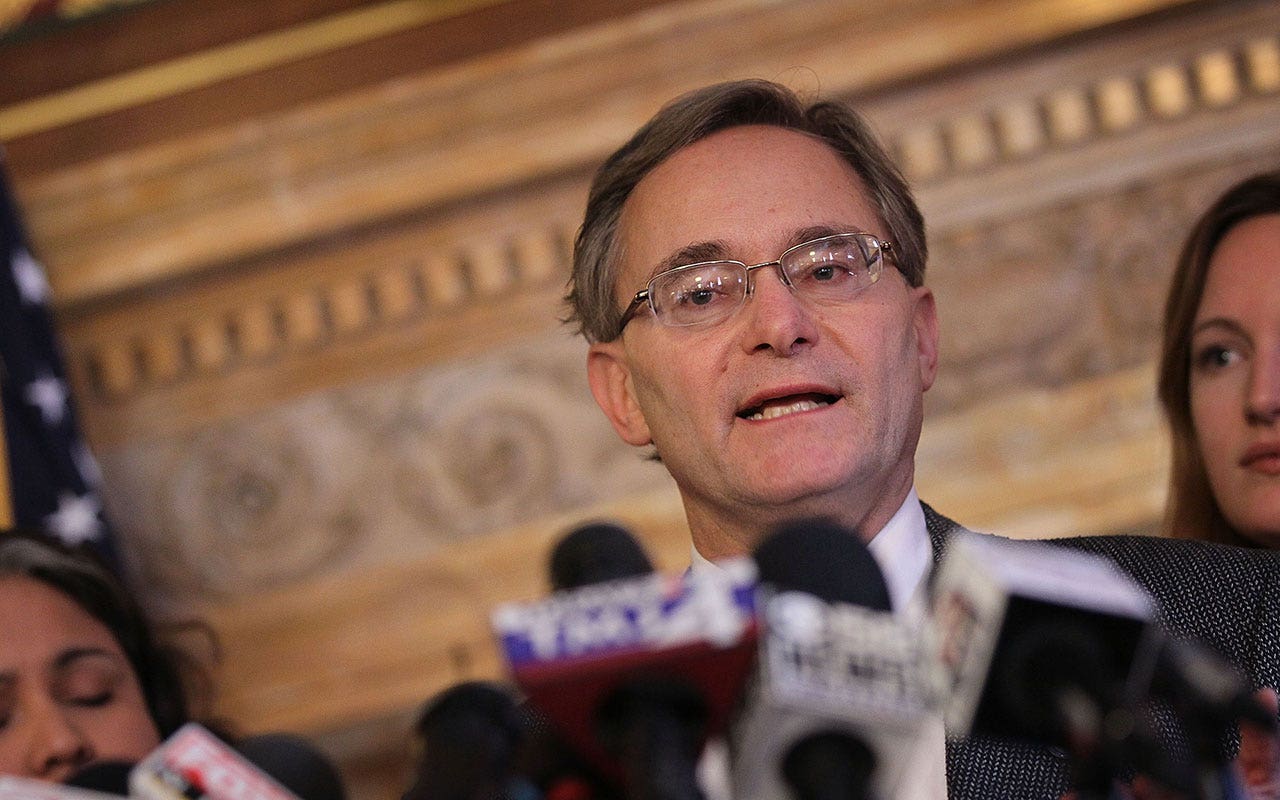
 Politics1 week ago
Politics1 week agoFormer Wisconsin Democratic Rep. Peter Barca launches congressional comeback bid
-
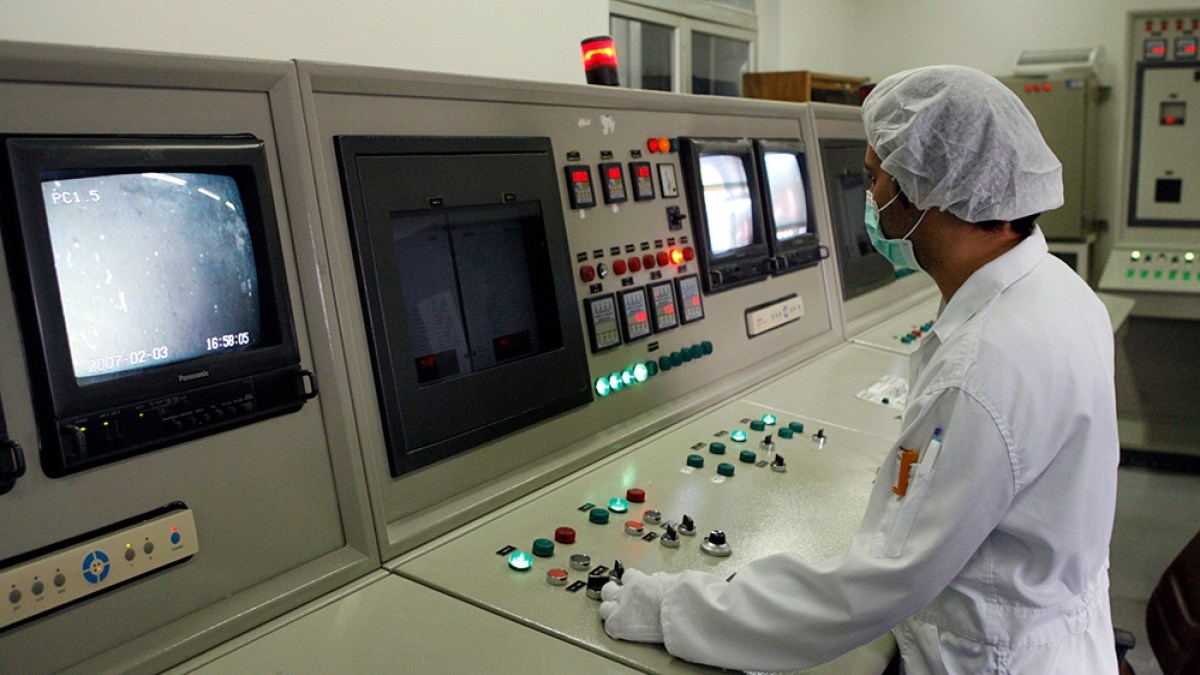
 World1 week ago
World1 week agoIsraeli attack on nuclear sites to prompt tit-for-tat, pursuing nukes: Iran
-

 News1 week ago
News1 week agoProsecutors say Trump violated gag order 7 times: Live updates
-
/cdn.vox-cdn.com/uploads/chorus_asset/file/24016887/STK093_Google_02.jpg)
/cdn.vox-cdn.com/uploads/chorus_asset/file/24016887/STK093_Google_02.jpg) Technology1 week ago
Technology1 week agoGoogle fires 28 employees after sit-in protest over Israel cloud contract
